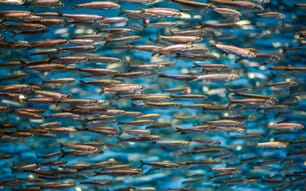Throughout his speech at the meeting of the Agriculture and Fisheries Council yesterday (22 April), Roderick Galdes, Parliamentary Secretary for Agriculture, Fisheries and Animal Rights, explained how European citizens are looking forward to an outcome that does not only look good on paper but one that guarantees a more sustainable fishery.
Malta insisted that the attainment of MSY depends on reliable data and scientific advice, and on targeted conservation measures. He explained that where fish stocks are shared with non-EU countries, which are also largely the case of Malta, both data collection, and the attainment of conservation benefits, depends on joint action with third country partners. The current proposals do not sufficiently cater for this reality and may lead to a failed Common Fisheries Policy.
In this context, Mr Galdes suggested that a number of amendments being proposed by the European Parliament be taken on board so as to ensure that stocks that are shared with neighbouring non-EU countries are also managed in a sustainable manner. He insisted that the final agreement should guarantee the required certainty that conservation measures will lead to the desired goals. Failure to address this fundamental issue will not only imply a failed CFP reform across various basins, but may well lead to the end of some of the most sustainable fisheries segments.
Mr Galdes highlighted that artisanal and small-scale fishermen, while being the most sustainable fisheries segment, have very limited resilience and will be the first to suffer. This is certainly not where the Union wants to be heading and a more ambitious MSY approach, fully catering for fisheries that operate in waters shared with third countries, is required.
These concerns were also raised by Bulgaria, Croatia, Cyprus, Romania and France.



